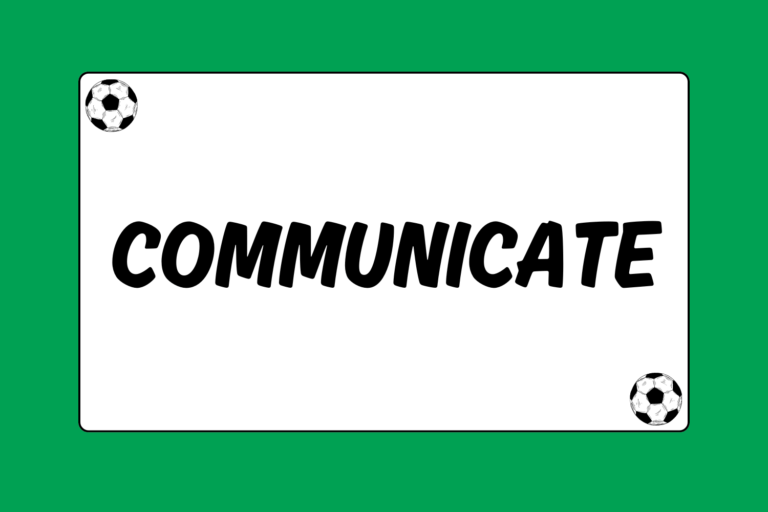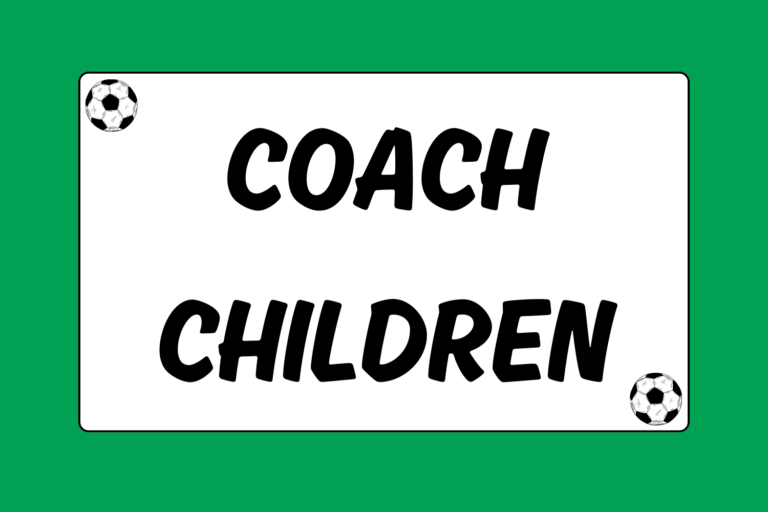In order for a youth soccer team to operate successfully, there is a certain degree of parent cooperation required. The roles will vary in importance and work volume. However, volunteering to take one of the roles below will lighten the burden on the coach, and give parents a sense of fulfillment.
Assistant Coach
In all likelihood, a youth team won’t have the luxury of a ready-made assistant coach waiting in the wings. This means one of the parents will have to take on the task. An assistant coach is essential because they can coach the team in the absence of the head coach.
The head coach’s absence can happen relatively frequent over the course of a season, and it’s important to have a support network in place to avoid cancelling a practice or match. It’s also a good way for a parent to familiarize themselves with the game if they ever want to move into a more prominent coaching role.
If a parent is interested in becoming an assistant coach, they will need to take an introductory coaching class to secure their license. Usually the club will handle the nominal registration fee that this course requires.
Team Referee
Most teams are required to provide a team referee that helps sustain the demand for officiating in the league. Often times, there will already be a parent who’s a licensed referee.
If this is not the case, one of the parents will need to attend a referee licensing course. Similar to coaching courses, the club will usually pick up the registration fee for the parent who volunteers.
This commitment level tends to vary, depending on the conditions of the league. The parent who commits should plan on refereeing anywhere from 5-10 games over the course of the season.
Treasurer
The treasurer is responsible for managing the budget of the team and making payments to uniform retailers, tournament directors, etc. This is primarily an administrative role, so someone with a financial background and a strong attention to detail is ideal.
Tournament Coordinator
The tournament coordinator is responsible for researching, applying for, and confirming attendance to tournaments. The competition for getting accepted into prestigious tournaments can be steep.
Tournament coordinators should make sure to apply early, and keep a sharp eye out for any communication from tournament directors about the team’s application status.
Uniform Coordinator
The uniform coordinator is responsible for ensuring that everything runs smoothly in the process of acquiring uniforms. They will need to check what sizes the players need, and be sure that all items are accounted for. The uniform coordinator should also make sure they ask the coach what number the players want, and if last names should appear on the back of the jerseys.
Ride/Carpool Coordinator
Parents often have other obligations, and can’t always get their children to practice or games. It’s unrealistic to think that parents can be there all the time, which is why carpool coordination is essential.
The carpool coordinator should survey the parents at the beginning of the season to see where each child lives, and where each attends school. There is often overlap which will lighten the burden on everyone involved.
Hot Tip: Always Bring Soccer Snacks!
These are the most common snacks that parents bring to soccer matches. Before a match it’s ideal to bring lots of water for the kids to drink. At half-time, orange slices, granola bars, and Gatorade are ideal. The Gatorade will help to replenish electrolytes and give the players energy. After the match, it’s okay to reward the players with juice boxes and a healthy treat.
Travel Coordinator
Travel coordinators are responsible for planning accommodations if a tournament is not in close proximity to the team’s home town. Coordinators should consider the distance, and then survey parents on whether they would like to stay in hotels near the tournament. If this is the case, the travel coordinator should research local rates, and try to get all the kids staying in the same hotel.
If the team is highly competitive, air travel is sometimes involved. If this is the case, the travel coordinator is responsible for researching airfare rates, and ensuring that every player on the team has the necessary arrangements .
Having the team on the same flight is ideal. The travel coordinator should do research early before rates rise. This will also give parents enough time to book their flights in advance.
Fundraising Coordinator
The fundraising coordinator is responsible for coming up with fun and creative ways for the team to raise money. Depending on the financial constraints of the team, this role is not always a necessity.
However, even if the parents can afford to pay for everything it’s good to make the children do at least one fundraising event to make them appreciate the value of a dollar.
Fundraising ideas can be as simple as a bake sale or as advanced as writing grants to philanthropic organizations who give money to youth athletics. It’s up to the fundraising coordinator to determine the level of need, and act accordingly.
Snack Coordinator
During half-time and after each game, it’s important that children are getting a nutritious intake of carbohydrates, electrolytes, and water. This will give them fuel to burn during the match.
The snack coordinator is not responsible for providing this each week, but they are responsible for preparing a schedule so that a different child’s parents can bring snack for each week’s game. The coordinator should also give parents a friendly reminder when their turn is coming up.
Party Coordinator
It’s customary to throw an end-of-the-season party for the team. Sometimes parents elect to throw it at a house, and sometimes they choose to use a venue. The venue can be a restaurant, amusement park, etc.
The party coordinator doesn’t have to make this decision on their own, but they should take the lead in planning and facilitating the process of setting up an end-of-the-season party.
Team Infrastructure
Now that you have a strong understanding of all the roles that need to be filled, you know how to set up the infrastructure to run a successful team. Whether you are a new coach just getting your bearings, or a parent looking to get involved, this guide will have prepared you to take a proactive role in a child’s athletic development.





